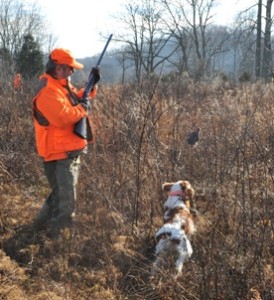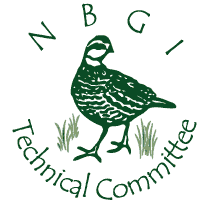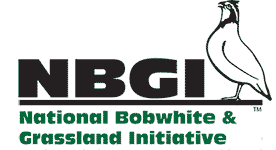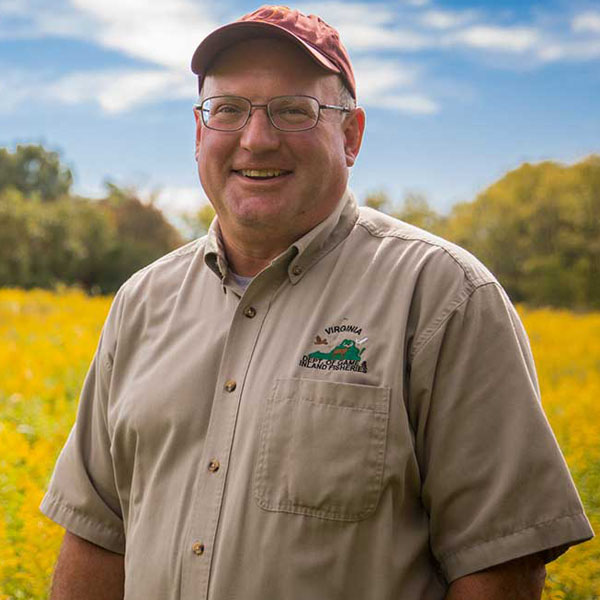In this modern era we live in I admit to not being able to keep up with communications. As small game project leader for VDGIF I get a lot of messages every day, dozens by e-mail – some good and some bad. As an aside, though our communications methods may be quick, we need to all remember (me especially) there is a person on the other end of the note and a phone call, or meeting in person is always best.
 |
|
A topic that has caused me to receive some “forceful” commentary lately is that of the quail season and bag limit. As many of you know, we (VDGIF) still allow quail hunting statewide with a bag limit of six per day. Many of you also know we have been working on a quail recovery initiative for many years now. We are doing that because across their range (in all 25 states of the National Bobwhite Conservation Initiative) quail continue to decline, markedly in some places. So why then do we still allow quail hunting?
“Geeze…you had to ask me that question again,” I may mumble to myself (because I struggle with the issue personally and it is not easy to answer). Every two years VDGIF takes public input on our game laws. (Essentially we always take public input, but this is officially for regulations). A series of committees composed of agency staff considers each and every comment. This does not mean each one is acted on or becomes a change. It does mean that they are all taken seriously. These committees debate and eventually make staff recommendations to our Board of Directors. The Board ultimately decides, after considering input from all parties involved, what changes are made.
OK, back to quail. I have been with VDGIF for 19 years and for the last 7 years have been the small game co-project leader. This is the 4th regulations cycle that I will have overseen for small game. Our small game team will again debate the issue of the quail season and bag limit. Each time in the past we have concluded that changes would make no biological difference to quail populations. Let’s look at why before we discuss sociological reasons for changing or not.
To a large degree quail hunting pressure is self-regulating. Where quail populations are low, quail hunting effort is low to non-existent. Generally speaking, as you move from east to west in Virginia, the quail population declines. Our hunter surveys show that there are about 9,000 quail hunters in Virginia (down from a high of 143,000 in 1973), but this includes incidental quail hunters who may see quail while hunting other species. To the best of our ability to determine it there are fewer than 500 avid quail hunters left in our state, and most of them can be found in the East where quail populations still produce some good hunting (some hunters finding over 100 unique coveys in a season). Avid quail hunters tend to also be avid quail conservationists. This means that they do not shoot coveys down below eight quail, and they don’t hunt them until dark. They’ll quit early enough to allow the coveys to regroup for roosting. They, more than anyone else, recognize the plight of the bobwhite.
Quail are also what biologists call R-selected species. This means they live short lives, suffer high mortality annually and have the ability to recover quickly in suitable habitat. Most quail populations, even in an un-hunted environment, suffer 80% or greater mortality annually. It is generally accepted among quail biologists that a population can suffer 20% to 40% hunting mortality without long term negative population consequences. However, it has been shown that not all quail mortality is created equal. The closer to spring a quail lives, the greater its chances of producing little quail. Studies have shown that late winter mortality (February and beyond) has more of an effect on the population than earlier mortality. This is why Virginia closes our quail season at the end of January, while other states seasons remain open through February and into March in some cases.
It is agreed among wildlife professionals that hunting is not the cause of the bobwhite quail decline and eliminating hunting will not bring them back (and reducing bag limits would have no affect at all). If we look at ruffed grouse for example, the season was closed in Virginia east of I-95. This was done primarily because restocking efforts were attempted there that ultimately failed. Though the grouse season has been closed east of I-95 for decades, grouse have not recovered there. We also note populations of many non-hunted species that use similar habitats to bobwhites are declining, too. Birds likes grasshopper sparrows, Bachman’s sparrows, prairie warblers, field sparrows, along with numerous pollinating insects, are declining primarily because of habitat loss (other factors contribute, but not hunting).
We try to base our recommendations on science to the extent possible, but there are social aspects that factor into decisions – we are humans after all. One reason we have hesitated to close the quail season in parts of the state where populations are low is that we feared it would send the wrong message. By closing the season the general public may be led to think hunting is the cause of the decline. So why close a season when we know it will have no impact on the population at all and may send the wrong message? You hopefully can now see the decision is not as simple as you might have thought.
But what about sending the right message? Should we close portions of our season to demonstrate the dire straits quail are in throughout much of Virginia? Would closing the season finally get that message out? Should we consider closing or reducing the season in central Virginia, where pockets of good quail numbers remain, but where much of the area has low quail populations? Should we consider imposing a daily time cut-off like many western states do (many end all bird hunting at 4:00 p.m.)?
Our team will consider all these scenarios again in the coming months. I personally would like to think that bird hunters are special, of high ethics, and more regulations would do little to assuage the bobwhite’s plight. As a bird hunter you need to ask yourself, “Just because I can legally kill six quail, should I?” I also hope each of you, regardless of whether you agree or disagree with our logic or the results, keep in mind, we have the best intentions at heart and we do not take these things lightly.
Lastly, Merry Christmas to all of you.


